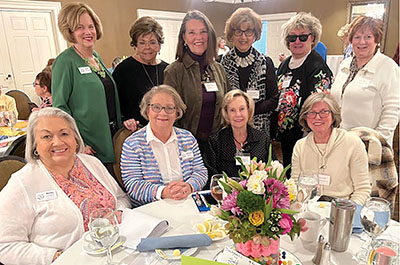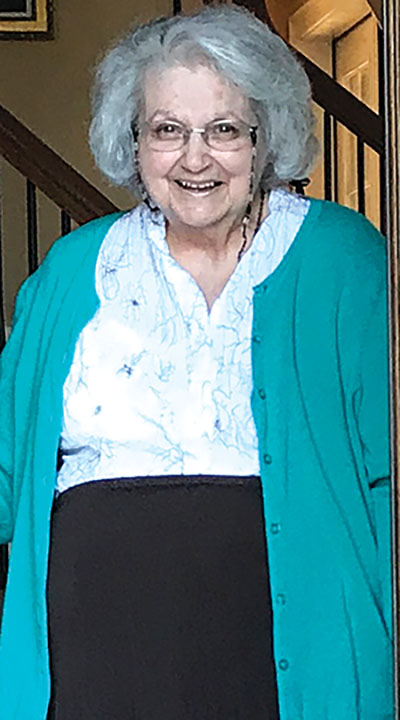100 years celebrated at Dixie Hwy. Garden Club
One hundred years ago, Carolyn Powell Brown, a woman of high standing in the Knox County community, had a vision to start a garden club in what is now the Farragut area.
Brown, now deceased, and Mrs. G.A. Flickinger visited the home of Mrs. J.G. Prater on May 11, 1924, and they formed Dixie Highway Garden Club, named after the then newly completed highway.
It was “the series of roads that connecting the Midwest with sunny Florida,” the club’s written history stated.
Now with 29 members, Dixie Highway Garden Club celebrates its 100th anniversary with a tea from 10 a.m. to 1 p.m., Thursday, Sept. 12, in Bleak House, also known as Brown’s “Casa Modena,” 3148 Kingston Pike, in Knoxville.
Those attending are asked to park in the Calvary Baptist Church parking lot.
The event is open to the public and free of charge, said Rose Moseley, club publicity chair who has been with the club since 1998.
“It seems like forever,” she said of her own membership in the garden club. She recalled she was chairing the Dogwood Arts Festival in 1995 when she was approached about joining, then finally joined three years later and made “lifelong friends.
“I love being part of this club,” Mosely added.
“This has been a journey, for me,” said Linda Ford of Farragut, the club’s historian and executive board member who has been with Dixie Highway Garden Club since 1988. “We are riding on the results of what (Brown) started.
“We have a wonderful club,” she added. “It’s just a group of various ages and different interests … we have a great time.
“We plan interesting things to help the community. It’s just a good way to spend time and have great camaraderie with friends.”
Among the club members are Virginia Price, the great-great-granddaughter of Mrs. J.G. Prater; Beth Flickinger (granddaughter of Flickenger, the other founder); mothers and daughters, and some of the oldest members, such as Anna Lou Reynolds, who joined in the 1960s.
Brown also is credited for founding the Lenoir City Garden Club, Knoxville Garden Club and restoring the gardens at the Bleak House in Knoxville. “She was talented in that way (the gardens) and she was talented in bringing people together,” Ford said. “She just had a way with people.”
Brown formed the club at a time when garden clubs were all the rage, according to the club’s written history.
“Their emphasis was on horticulture — helping women decide what varieties of fruits, vegetables and ornamental plants to grow,” the history stated. “The Dixie Highway Garden Club had no state or federal affiliation when it was founded.
“It became affiliated with state and national organizations after they were formed,” it stated. “The Tennessee Federation of Garden Clubs formed in 1926. National Garden Clubs, Inc. formed in 1929.
“The interests of Dixie Highway Garden Club and all NGC garden clubs have expanded beyond horticulture to include floral design and civic and environmental responsibility,” the history stated.
“If you have ever noticed a Blue Star or Gold Star Marker honoring members of our military, you have seen a bit of our civic work.
“The TFGC state headquarters are here in Knoxville at another bit of Knoxville history, Racheff House, Gardens and Arboretum,” the history stated.
“Ivan Racheff bought Knoxville Iron Works in 1947. He began the garden on the site of a former steel mill junk pile next to the 1902 house used as the mill’s office.
“He gifted the house and garden to TFGC in 1970 and it is now an arboretum open to the public — and a wonderful place to spend a few minutes in a beautiful garden,” the history stated.
“The Browns purchased the Bleak House in the early 1900s, renovated it to its Italiante glory and renamed it Casa Modena,” the club’s history further stated. “Carolyn was famous for her renovation of the terraced gardens leading down to the Tennessee River.
“Although all Carolyn’s family unfortunately preceeded her, the money remaining in her estate built UT’s first student center,” which no longer stands, the history account stated.




